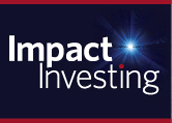Hydropower in Costa Rica, biogas in India and cookstoves in Ghana. Call it microfinance 2.0--the "missing middle" meets clean energy. By supporting small and growing businesses that distribute clean energy, E+Co has been a key catalyst in simultaneously reducing poverty and cutting carbon emissions in 20 countries in Asia, Africa and South and Central America. In 2008, the Financial Times named it Sustainable Investor of the Year.
But now, headed by a new management team, the pioneering clean energy fund is restructuring from nonprofit to for-profit status and from offering mostly loans as a venture debt fund to private equity.
And now it has a new name, Persistent Energy Partners, with offices in Ghana, Tanzania and New York. Furthermore, it is narrowing its focus to Africa where it hopes to finance entrepreneurs that grow companies of substantial impact.
"After years of home solar investing in Tanzania, penetration is estimated at less than one percent," says Chris Aidun, Persistent's new CEO and E+Co's former pro bono counsel. "If we can prove that some models work--socially, environmentally and financially--we think significant capital will flow to providing energy for the bottom of the pyramid.
"Look at what mobile phones did for Africa," he says.
"It's not an easier model, but we think it's a more effective model," adds Bruce Usher, Persistent's new executive chairman and a E+Co board member.
Late this month, E+Co completed a restructuring whereby it wrote off nearly half its $28 million portfolio and transferred remaining assets in Asia and Central and South America to other fund managers. Under the plan, which it negotiated with five institutional creditors representing 80% of its debt, led by the International Finance Corp., the firm's debts will be cancelled in exchange for a percentage of collected debts plus a stake in remaining assets. The firm's other creditors, holders of E+Co's "People and Planet Notes," will receive their pro-rata shares.
According to Aidun, a portion of E+Co's remaining African portfolio will be put into a fund with a six-year term. Representing investments in solar energy, cookstoves and liquid petroleum gas, this "core Africa" portfolio consists of about $5 million of investments in Tanzania, Uganda and Ghana. Since the portfolio is "mature," there will be a one-year investment period and a five-year harvest period, and projected returns will depends on investor appetite.
"If we knew we could raise a 1% to 3% fund, that would be great because we could be more aggressive and probably do a better job with the mission," Aidun says. "But if there isn't a community of investors who want to be that aggressive, then we will change the design and work toward higher yields."
Energy Through Enterprise
Sparked by a research project at the Rockefeller Foundation, E+Co was launched in l994 based on a paradigm-shifting idea: if you are concerned about the global environment, you have to be concerned about energy, especially in the developing world.

